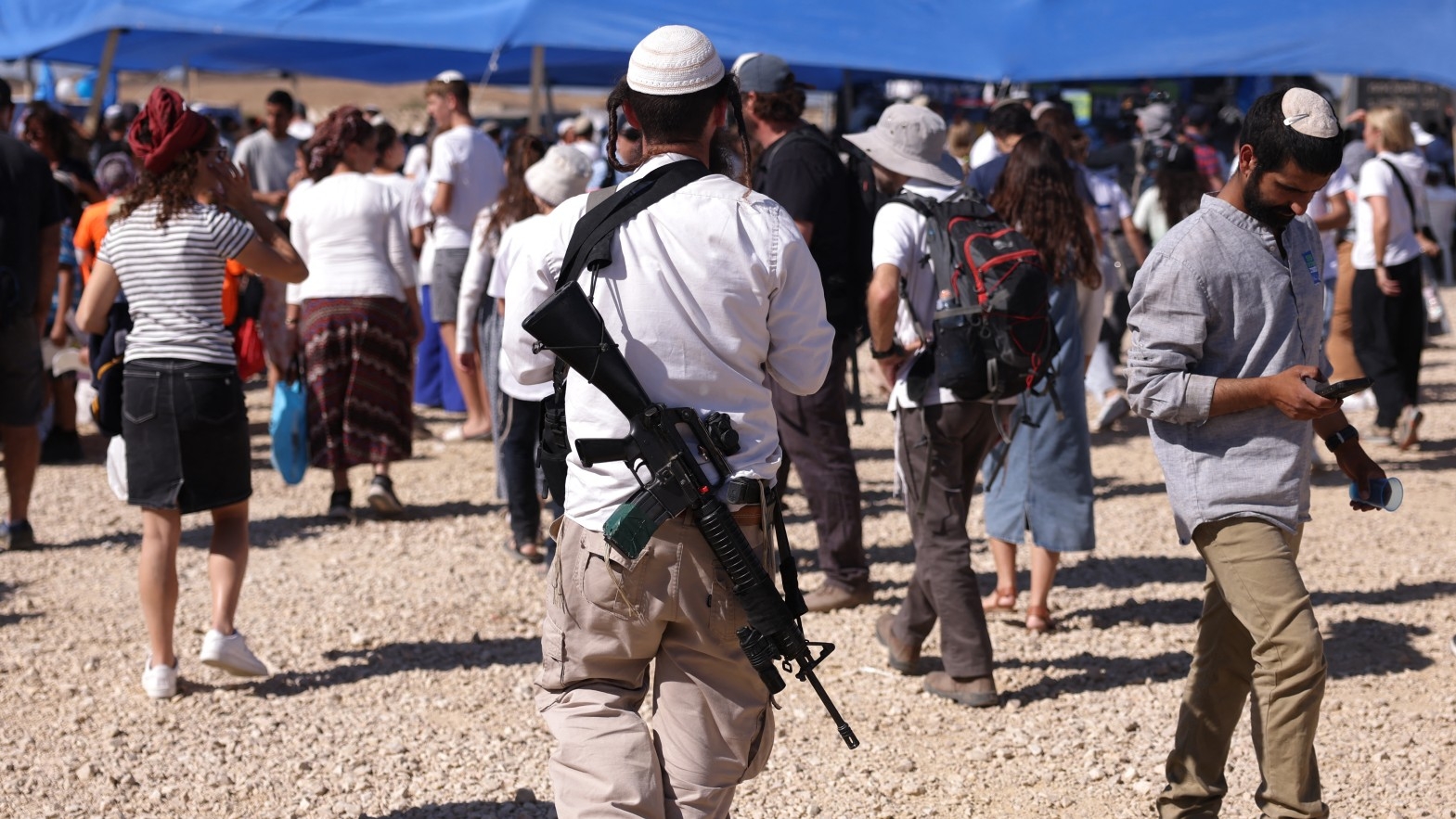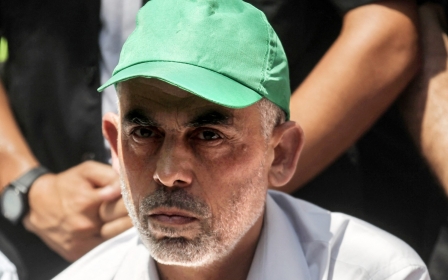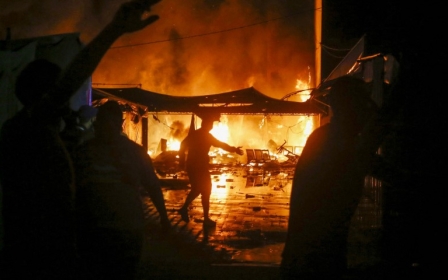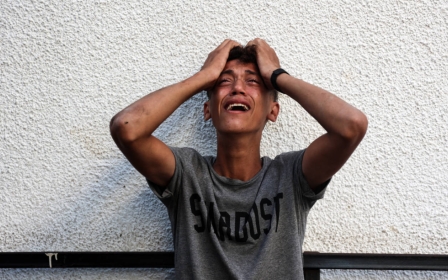In Israel, a genocide culture has won and wants endless war

For an entire year, Israel's security forces have been insisting that Hamas leader Yahya Sinwar was hiding underground, surrounded by hostages, and likely disguised as a woman, with a head and face covering.
Sinwar died on the battlefield on 16 October, in a chance encounter with Israeli forces, armed, without hostages around him, while wearing combat fatigues. It was a symbolic death, after managing to evade Israeli military forces for a year, that solidified his image as a leader who died fighting rather than through an Israeli assassination.
Both the timing and the symbolism of his death triggered rapid political shifts, refocusing attention from Lebanon back to Gaza.
On one side, the families of the Israeli hostages and the US president perceived Sinwar's death as an opportunity to push for a deal with Hamas for the release of the hostages, knowing that such a significant blow to Hamas could endanger their lives.
On the other hand, right-wing members of the Israeli Knesset, particularly from the messianic right, saw Sinwar's death as a form of divine justice, using it to justify more brutality. Even if they agreed to a hostage deal, so they seemed to think, it would be in the service of their goal of conquering Gaza and settling there.
New MEE newsletter: Jerusalem Dispatch
Sign up to get the latest insights and analysis on Israel-Palestine, alongside Turkey Unpacked and other MEE newsletters
We don't yet know what the fate of the remaining hostages will be. But based on what we've seen from the outset of the genocide - an intelligence failure that lasted an entire year, unable to locate Sinwar, despite the brutal violence that spared no means and killed tens of thousands of Palestinians, most of whom were innocent - it seems his death will bring more uncertainty than anything else.
However, one thing does seem certain: the victory of the genocide culture within Israeli society.
Consequences
On Israeli TV's Channel 12, commentator Amit Segal, immediately after confirming the death of Sinwar, said that this "success" was due to Israel not listening to anyone for a whole year and continuing its military strategy, avoiding a ceasefire despite all international pressure.
The babies, women and thousands of Palestinians in Gaza who have died without any justification did not enter the equation. It was a price that the Palestinian people had to pay for the international community's inability to stop the genocide.
Follow Middle East Eye's live coverage of the Israel-Palestine war
Of course, it's not just Segal or right-wing politicians - there is a glaring absence of Israeli public discourse about how many more children must die to ignite an opposition that demands a ceasefire from a moral standpoint, in light of countless testimonies and videos of Palestinians in Gaza being killed in the most horrific ways imaginable.
Even now, as hundreds of thousands of Palestinians are being starved to death in the northern Strip, the US, which funds the genocide, has threatened consequences if Israel does not allow humanitarian aid.
Yet everywhere we look - whether in Knesset committees, news studios, or even on the streets - a culture of genocide is developing where people justify the killing of Palestinian babies so they won't grow up to be "terrorists".
Worse still, with every Israeli military operation, whether moral or not, whether it achieves its goals or not, public opinion becomes even more supportive of expanding the war.
War with Iran
The most prominent example is in Lebanon, where the pager attack, with the push of a button, Israel was ready to risk the deaths of thousands of Lebanese without really knowing what it was hitting or the danger it posed to thousands of civilians nearby.
That atrocity created public support in Israel for expanding the war in the north. So for those who believe that the euphoria in Israeli society over Sinwar’s death will lead to a sense of victory and justification for ending the genocide, they are probably wrong.
As Haaretz journalist and military expert, Amos Harel, wrote less than a day after the news of Sinwar’s death, Israeli Prime Minister Bejamin Netanyahu now saw an opportunity to expand the war again in response to Iran, potentially attacking its nuclear facilities and risking the entire region, especially its allies in the area.
Even if everyone with common sense understood that such an attack would have devastating consequences for all parties involved, according to Netanyahu’s political calculations, there is no reason to stop.
Both the public and opposition parties support expanding the fighting. Even Yair Golan, leader of the centre-left Democrats party, supported a ground invasion of Lebanon even before Netanyahu.
Aside from promoting a hostage deal, there is no political debate in Israel. Even in the face of threats to strike Iran’s nuclear facilities - a global-scale risk - Israeli society does not dare oppose such a move.
There is not even a real discussion about the economic and regional implications for Israel and its allies in the region and what might follow such an event.
No desire to stop the killing
Worse still, the only real discussion about the war is around expanding Israel’s borders, from Gaza to the West Bank and southern Lebanon.
In other words, Netanyahu’s only opposition now comes from the right, which wants to settle in northern Gaza and southern Lebanon, and annex the West Bank.
Israel will continue its offensive as long as no significant force stands in its way, while it attempts to carve out a new Middle East where it is the sole hegemon
Thus, the efforts of world leaders who see Sinwar's death as an opportunity to promote a governance arrangement in Gaza and end the war miss the mark in understanding the culture of genocide within Israeli society - which is not interested in stopping the killing.
Instead, there is a drive to expand the fighting and a fantasy of dragging the US into a conflict with Iran.
I do not for a moment underestimate the symbolism of Sinwar's death for millions of Israelis who sought revenge for the events of 7 October.
However, I have no illusions that within Israel's genocide culture, the sense of revenge is not limited to Sinwar and Hamas but extends to the entire Palestinian people.
Israel will continue its offensive as long as no significant force stands in its way, while it attempts to carve out a new Middle East where it is the sole hegemon. This promotion of a genocide culture will only worsen, eventually encompassing other Palestinians.
After a whole year without a moral reckoning for what has been done in Gaza, coupled with western support for these actions, there is no reason to stop.
The views expressed in this article belong to the author and do not necessarily reflect the editorial policy of Middle East Eye.
Middle East Eye delivers independent and unrivalled coverage and analysis of the Middle East, North Africa and beyond. To learn more about republishing this content and the associated fees, please fill out this form. More about MEE can be found here.






